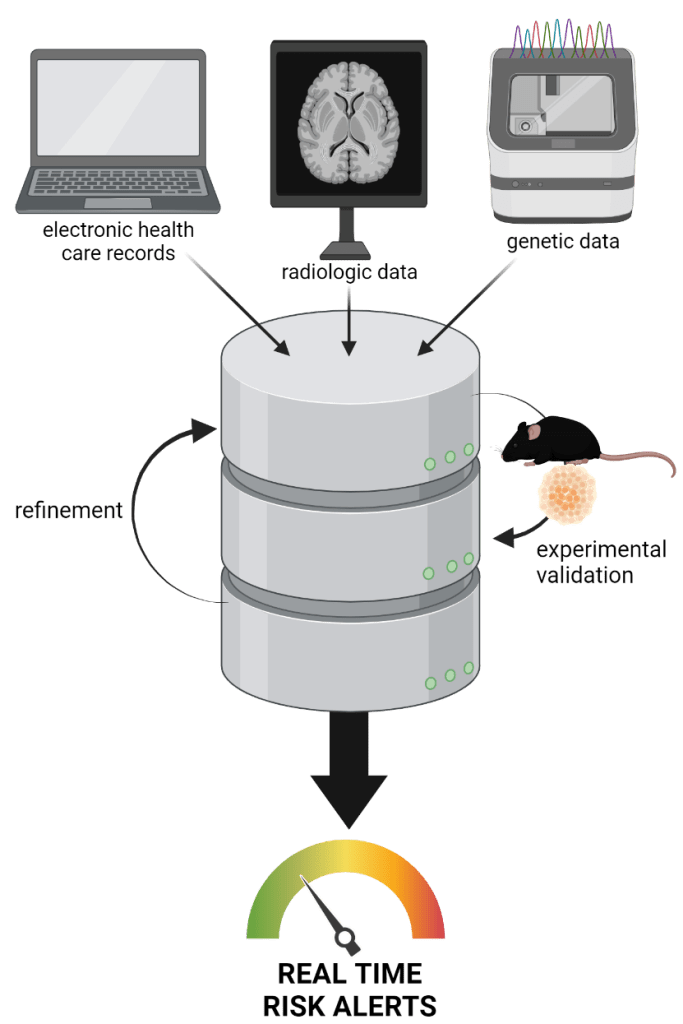NF1 Risk Assessment Initiative
Neurofibromatosis type 1 (NF1) is a genetic condition, affecting 1 in 3,000 individuals worldwide. Caused by a mutation in the NF1 gene, children and adults with NF1 are prone to the development of numerous medical problems, including developmental delays, cognitive and attention deficits, and behavioral problems (autism), bone and heart defects, and tumors of the brain and nerves. With refinement of the clinical criteria and the availability of reliable NF1 genetic testing, the ability to confidently establish a diagnosis of NF1 has become routine. However, it is currently not possible to predict which of the multitude of medical problems any particular individual is likely to develop and how they will progress. This uncertainty necessitates a one-size-fits-all watch-and-wait approach to clinical management, which imposes a substantial burden on patients, their families, and their care providers.
The Washington University Personalized NF1 Risk Assessment Initiative is a cross-disciplinary collaboration that was established to identify and validate disease-modifying risk factors for NF1 with the goal of establishing a dynamic predictive algorithm for real-time implementation at the point-of-care.
To tackle this challenge and build upon prior successes, we have assembled a multi-disciplinary team of expert clinicians (Amy Armstrong, MD, Pediatric Oncology; Stephanie Morris, MD, Kennedy-Krieger Institute), Biomedical Informatics and Data Science Investigators (Aditi Gupta, PhD, Randi Foraker, PhD, Philip Payne, Institute for Informatics, Data Science, and Biostatistics), and laboratory researchers (Corina Anastasaki, PhD, Yunshuo (Caroline) Tang, MD, PhD, David H. Gutmann, MD, PhD, Department of Neurology; Susan Maloney, PhD, Department of Psychiatry; Angela C. Hirbe, MD, PhD and Nicole M. Brossier, MD, PhD, Divisions of Adult and Pediatric Oncology, Yuan Pan, PhD, MD Anderson Cancer Center).
Together, we have established an artificial intelligence (AI)-based approach, through which electronic health care data are analyzed using machine learning and natural language processing methods to identify potential risk factors for specific medical problems seen in children and adults with NF1. Using an iterative process, in which identified risk factors are experimentally validated in the laboratory using novel genetically engineered mouse and human induced pluripotent stem cell models of NF1-associated clinical features, independently assessed at our collaborating institution, and refined, we are developing predictive algorithms to accurately estimate the risk of developing specific clinical features of NF1 (Figure). The ultimate goal of this set of approaches is to provide a real-time risk assessment dashboard and clinical alerts for use at the point of care.

NF1 Risk Assessment Pipeline. Electronic health record, radiologic, and genetic data are fed into the risk assessment pipeline, which are continually refined and validated by laboratory investigation, to produce real-time risk alerts for medical practitioners.